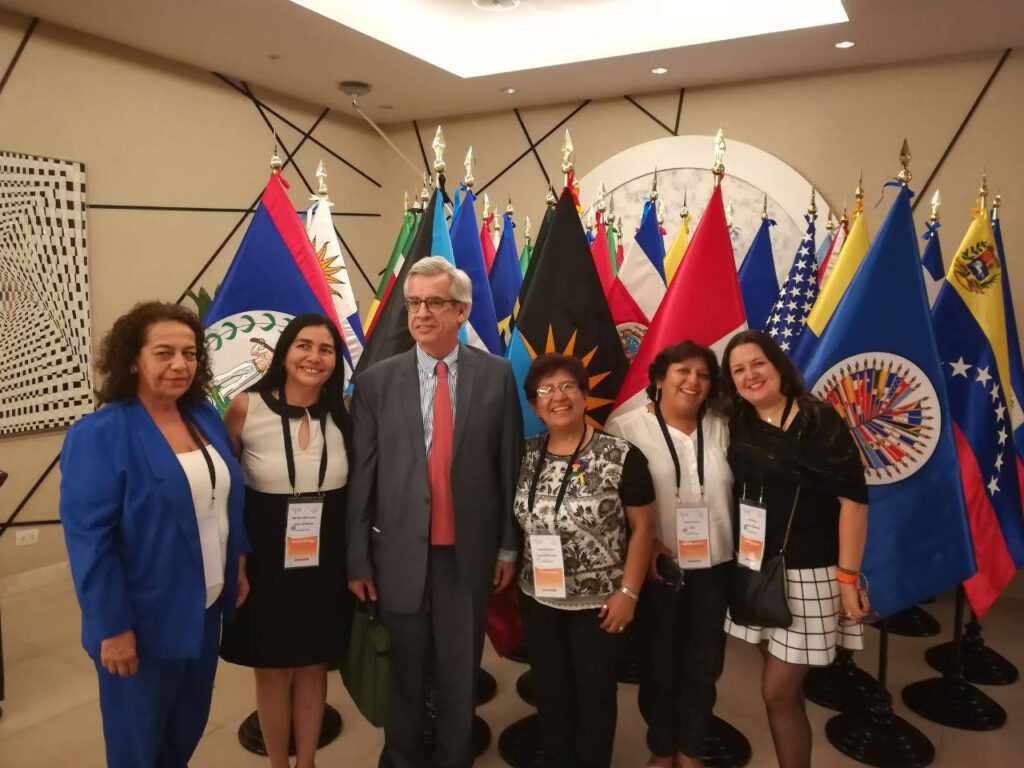Blog
Dialogue as the Centre of Political Advocacy
By Gina Romero
Dialogue is at the center of advocacy. The more voices it includes, the more powerful the advocacy gets.
Many civil society organizations, social groups, and activists use advocacy as their central working tool. “Political Advocacy is a set of focused actions, aimed at policy makers, in support of a specific political cause” (Policy Project, 1999). In this text, I will only talk about direct relationship actions (also called lobbying) who strive to convince governments and multilateral organisations (regional or global) to take into account the inputs and agendas of civil society, and to find solutions to the most pressing problems of citizens.
The political advocacy carried out by the representatives of the citizenry (ie. civil society, activists, and social actors) is focused on citizen diplomacy. Citizen diplomacy is a paradigm of international relations that arises when non-governmental actors become relevant in foreign policy, in an effort to generate “more inclusive and participatory deliberation mechanisms and decision-making processes” in the international actions of governments. This phenomenon of increasing participation of civil movements and organisations in foreign policy venues and processes for decision making has become a form of international pressure to achieve a response to the demands that domestic policy does not resolve.
“When CSO leaders in various countries are asked to define advocacy, it creates a debate between those who believe that advocacy is speaking up for those who have no voice (representation), those who believe that it is about urging others to speak up with you (mobilisation), and those who believe it is about supporting the voiceless to speak up for themselves (empowerment).”
Since its origins, advocacy actions have been at the heart of my leadership in Latin America and of the action of Redlad, the organisation I direct. Our advocacy actions are associated with three fundamental objectives: i) to position agendas and thematic or specific population demands, ii) to advance in the recognition of the importance of the effective participation of civil society and in guaranteeing the best processes, methodologies and others required for such participation, iii) take the voice of Latin American civil society to global spaces.
These direct actions have been carried out through high-level meetings (official and unofficial) with governments; multilateral organisations (such as the Organization of American States, the Inter-American Commission on Human Rights, the United Nations – especially rapporteurs for freedom of association, for freedom of religion and conscience, for minorities, and representatives of the office of the High Commissioner for Human Rights -, Community of Democracies, etc.); representatives of parliaments, local governments, etc.
All these actions are supported by the inputs that Redlad builds collectively with very diverse actors in different processes of dialogue and concertation. These inputs are built in extensive processes of dialogues and consultations, that gather information from hundreds of civil society representatives and social actors and include exchanges with actors from other sectors such as academia and the business sector, among others. The inputs take the form of independent reports, civil society agendas, petitions, recommendations, among others. Only advocacy actions supported by dialogue efforts that generate collective inputs are endowed with legitimacy from a perspective of representation and mobilisation.
Advocacy is also endowed with legitimacy when each of the agendas (national, thematic or population in scope) is mobilised by its own protagonists, in an action to empower activists, organisations, social movements, communities and peoples. This exercise of mobilisation and granting of power to voices that are generally ignored (such as indigenous nations or Afro-descendant communities) is also supported by dialogue actions, as was presented in a previous entry in this series of texts.
It is very important to give a voice to those who are leading social and political struggles. But, at the same time, to identify when our own voice, as spokesperson or representative of a group different from ours, can resonate in a stronger and more effective way than that of other dispersed voices. This balance is key in the field of citizen diplomacy.
The advocacy that I lead, then, is done from the bottom up. Advocacy inputs are built collectively taking into account and making visible the voices of grassroots organisations and actors that are relevant to the central issues of advocacy (for this reason dialogue is a vital asset). Also, Redlad’s advocacy actions have a shared protagonism: they are led by me and other actors from the institution I direct, but the participation of those same voices that build the inputs is also prioritised; It is not an extractive action but participatory and inclusive.
However, it is necessary to understand that citizen diplomacy requires a balance between confrontation and collaboration. The capacity to criticise governments and multilateral bodies must be built, but it is also necessary to move from the moment of complaint to propose options, build bridges of cooperation, and provide technical and political support to achieve the necessary transformations.
About the author:
Gina Romero is the director of the Latin American and Caribbean Network for democracy and part of the founding groups regarding different civil society organisations of every level (Ocasa (Colombia), Redlad (Americas), the World Youth Movement for Democracy, the Global Youth network for Democracy (global)). She has therefore much experience and know-how in topics such as public diplomacy, integrity and networking and many more.
Image Credit: Gina Romero
Published on February 9, 2023.
